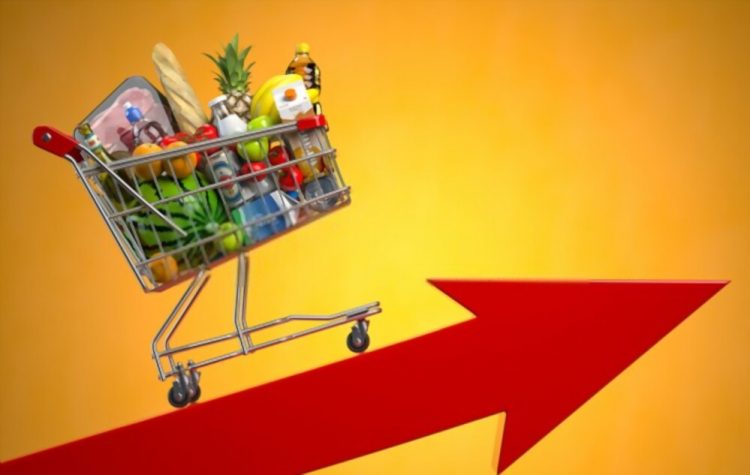How much has food gone up in the UK in 2022?
What do economic experts predict about the rising costs in the UK?
What is the reason for the reduction in British meals in recent months?
With Food prices rise in the UK, what strategies have the British turned to meet their living expenses?
Since the global food shortage and rising energy costs, resulting in Food prices rise in the UK, millions of UK citizens have cut back on their meals to save money. The question is, how much has food gone up in the UK in 2022?
Continued Food prices rise in the UK in the coming year
Maybe you also have a question, how much has food gone up in the UK in 2022? Economic experts predict that price increases and inflation will continue in the coming year for the British economy. On the eve of the Bank of the UK’s latest decision on interest rates, the Resolution Foundation think tank said that living pressures from rising prices are likely to be stronger and longer than the Bank predicted. The Bank of UK’s Monetary Policy Committee said in June that it expected inflation to reach just over 11 percent in October. In its latest report on the economic situation of the UK and private sector companies, the McGraw-Hill Economic Institute has announced that the services of this sector are at the lowest level since the quarantine of the winter season in 2021.
Reduced meals in the UK
After answering the question, how much has food gone up in the UK in 2022? The consequences must be dealt with. A Times Radio survey found that 16% of respondents have frequently cut back on their meals to save money. According to the results of this survey, out of every ten respondents, four have had to give up buying the food they usually use. About 50% of people participating in this survey said that due to the rising cost of living across the UK, they have had to cut back on eating out in cafes and restaurants to cut down on their expenses.
An unprecedented jump in the price of dairy products and poultry meat
Food inflation has reached 12.8% year on year – the highest value since August 2008 – fuelling a higher-than-expected overall consumer price index (CPI) of 10.1%, the Office for National Statistics (ONS) revealed. Food price inflation reached 11.6 percent over the past four weeks, the highest level since we first started tracking the data in 2008, the Market researcher Kantar said. These analysts added: “Over the past month, we’ve seen retailers expand and advertise their value ranges across the store to reflect demand,” said Fraser McKevitt, Kantar’s head of retail and consumer insight. “It’s not surprising that we’re seeing shoppers make lifestyle changes to deal with the extra demands on their household budgets.” According to consultancy Kantar, the average household’s annual grocery bill will increase by £533 ($640), or £10.25 ($12.32) a week.
Changing shopping habits in the UK
Rising prices will lead the British public to change their shopping habits, for example, to shop around retailers for the best and cheapest goods and to favour cheaper brands instead of big-name brands. Unsurprisingly, we’re seeing buyers make lifestyle changes to cope with the additional demands on their household budgets.
The increasing popularity of cheap brands
According to Kantar analysts, private and low-cost brands are at an all-time high in popularity, with sales up 7.3 percent and commanding 51.6 percent of the market compared to branded products, witnessing the largest market share they’ve ever recorded.
Worrying economic shocks in the UK
The Bank of England (BoE) has warned that the country’s economic outlook has worsened since the start of the year and urged lenders to set aside more capital to absorb market shocks. The Bank wrote in its “Financial Stability” report: “The global economic outlook has deteriorated markedly. Global financial conditions have tightened significantly,” Bank of England Governor Andrew Bailey told a news conference after the BoE published its half-yearly Financial Stability Report (FSR). According to the statement, rising prices, weaker economic growth and tightening financing conditions will make it harder for households and businesses to repay debt.
In this article, we were looking for an answer to the question, how much has food gone up in the UK in 2022? The level of uncertainty in the economic outlook is significant, and several downside risks could negatively affect the financial stability of the UK. Economists warn that the inflation rate in the UK is expected to reach 11% later this year, and the rate base interest rate of the Central Bank will increase to 3 per cent by the end of 2023.





























